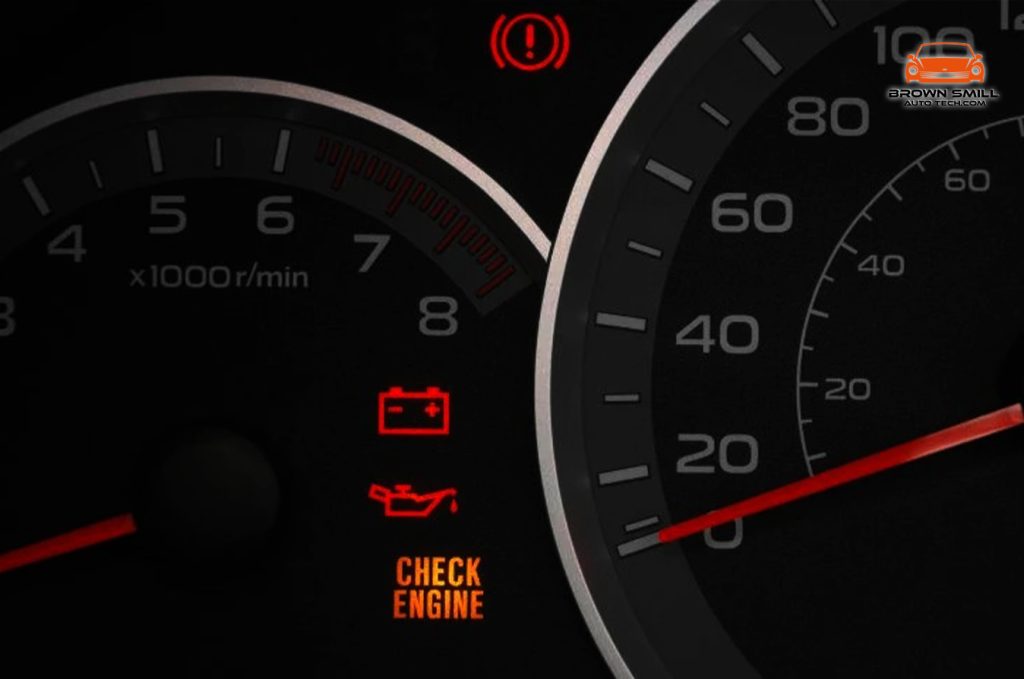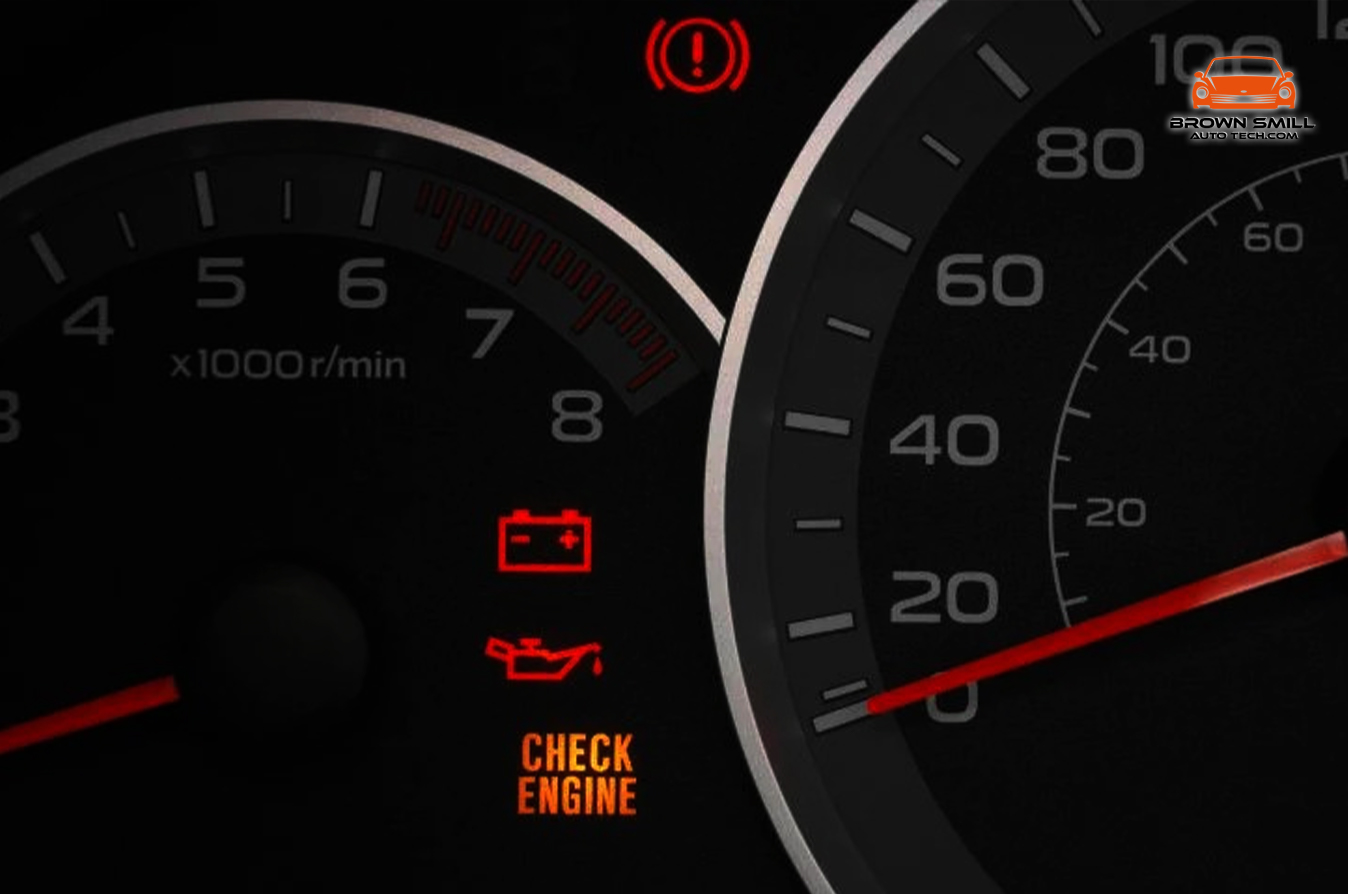The check engine light is a warning that something is wrong with the vehicle’s engine. The most common cause of the check engine light coming on is a problem with the vehicle’s emission control system. However, if the oil level is low, it can also trigger the check engine light.
As the price of oil continues to fall, many drivers are wondering if they’ll see their check engine light come on more often. The answer is, unfortunately, yes. Low oil can cause your check engine light to come on, as well as a host of other problems.
So what’s the best way to avoid this? First and foremost, make sure you’re checking your oil level regularly. If you notice it’s low, top it off right away.
It’s also a good idea to get your oil changed more frequently than the recommended interval if you live in an area with extreme temperatures (hot or cold). This will help ensure that your oil doesn’t break down as quickly and can better do its job of lubricating and cooling your engine. If you do find yourself with a check engine light due to low oil, don’t panic.
Simply add more oil and keep an eye on the level. Once it reaches the full mark, the light should turn off on its own.
What are the Symptoms of Low Oil in a Car?
If you notice any of the following symptoms, your car may be low on oil:
1. The engine is making unusual noises.
2. The check engine light is illuminated.
3. You notice a loss of power when driving.
4. Your fuel economy has decreased significantly.
5. Smoke is coming from under the hood of your car.
What is the Most Common Reason for Check Engine Light?
The most common reason for a check engine light is a faulty oxygen sensor. The oxygen sensor is responsible for monitoring the air/fuel mixture in the engine. If it senses that the mixture is too rich or too lean, it will trigger the check engine light.
Other common causes of a check engine light include a faulty spark plug, mass airflow sensor, or catalytic converter.
What Happens When Engine Oil is Low?
If your engine oil is low, it’s not getting the proper lubrication it needs to run. This can cause all sorts of problems, from decreased performance to complete engine failure. The first thing you’ll notice if your engine oil is low is probably a drop in performance.
Your car will feel sluggish and may have trouble accelerating. You may also notice some strange noises coming from the engine area. If you continue to drive with low engine oil, eventually the parts in your engine will start to grind against each other without the proper lubrication.
This can cause serious damage to your engine and ultimately lead to complete failure. So if you think your engine oil might be low, get it checked out as soon as possible!
Quick Lube Oil Change and Now Check Engine Light is on – Here is Probably Why – check this first

Will Needing an Oil Change Make Check Engine Light Come on
It’s pretty common for the check engine light to come on when you need an oil change. The light is telling you that your engine isn’t getting the right amount of lubrication, which can cause all sorts of problems. So don’t ignore it- get that oil changed as soon as possible!
Check The Engine Light On But the Car Runs Fine
If the check engine light is on in your car but the car seems to be running fine, there are a few potential explanations. First, it’s possible that the light is simply burned out and needs to be replaced. Second, the light may be coming on because of a loose gas cap or another issue that is causing your car to emit too many pollutants.
Third, there could be an issue with your catalytic converter or other emission control device that is causing the light to come on. If you’re unsure what is causing the light to come on, it’s best to take your car to a mechanic or dealership for diagnosis.
Does The Check Engine Light Come On For An Oil Change Volkswagen
If your check engine light comes on in your Volkswagen, it may be time for an oil change. Check engine lights can come on for a variety of reasons, but one common reason is that the oil needs to be changed. If you’re due for an oil change, make sure to get it done as soon as possible.
Continuing to drive with old or dirty oil can cause damage to your engine.
Car Shaking And Check Engine Light on After Oil Change
If you’re like most people, you take your car in for an oil change when the manufacturer recommends it. However, sometimes after getting an oil change, your car may start shaking and the check engine light may come on. There are a few things that could be causing this.
First, it’s possible that the oil filter was not properly installed or that the wrong oil filter was used. This can cause restricted oil flow, which can lead to engine shaking and damage. Another possibility is that too much or too little oil was added during the change.
If too much oil is added, it can cause foaming and aeration, which can also lead to engine shaking. On the other hand, if not enough oil is added, your engine will have to work harder to compensate, which can also lead to shaking. If your car starts shaking and the check engine light comes on after an oil change, the best thing to do is bring it back to the shop where you had the change done and have them take a look.
In most cases, they’ll be able to identify and fix the problem quickly so you can get back on the road without any worries.
Conclusion
If your check engine light is on, it could be because your oil is low. This isn’t necessarily a cause for alarm, but you should check your oil level as soon as possible and top it off if necessary. If you continue to drive with low oil, you could damage your engine.




Leave a Reply